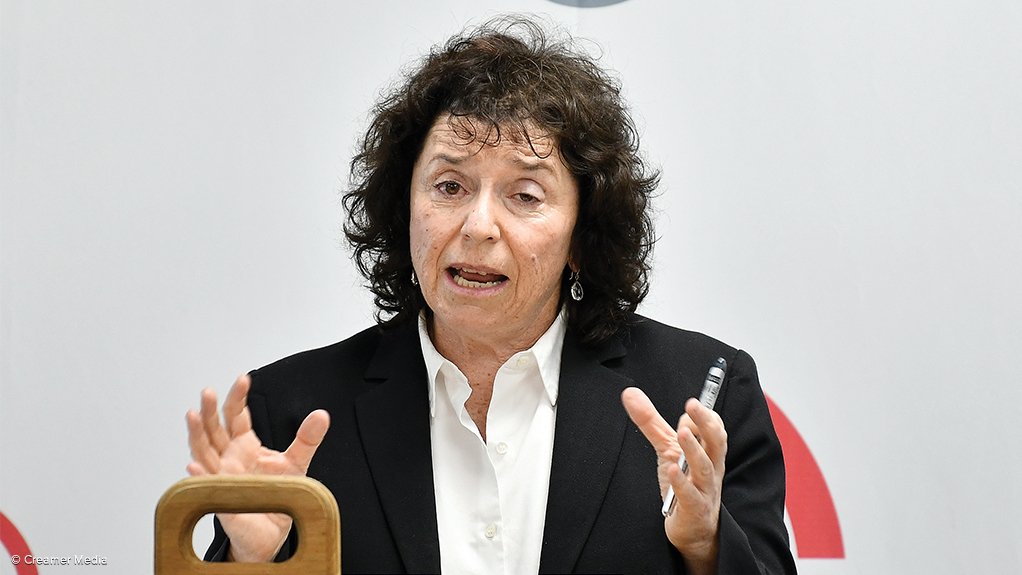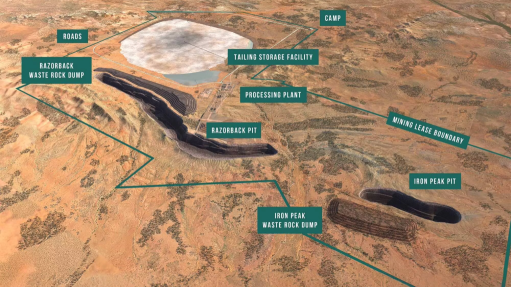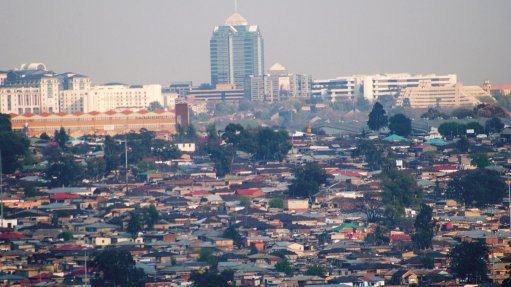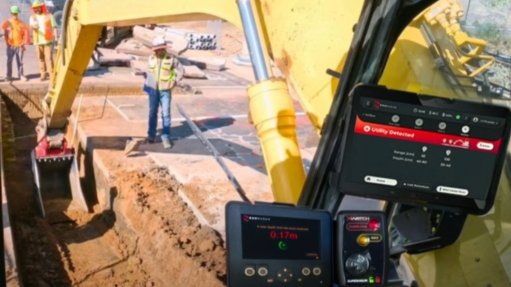CDE lays out path to economic rescue ahead of MTBPS
Ahead of Finance Minister Enoch Godongwana’s November 1 Medium Term Budget Policy Statement (MTBPS), policy think tank the Centre for Development and Enterprise (CDE) has set out what it thinks government must prioritise to reverse the collapse in economic growth.
“The essential precondition of growth in South Africa today is that you can’t start to rise until you have stopped falling,” CDE executive director Ann Bernstein says.
In a new CDE report titled ‘A country in crisis: first steps towards a growth strategy’, the CDE says government needs to focus on three priorities to stop South Africa from “falling apart”.
These priorities are: improving security and the rule of law; addressing the crises in energy and logistics; and stabilising public finances.
“These priorities are not a recipe for rapid and sustained economic growth. But failing to prioritise them will guarantee that accelerated and sustained growth can never be achieved.”
“The implementation of these priorities must be guided by hard-nosed realism about what government can do now. Everyone should stop fantasising about a capacitated state emerging soon and recognise that pro-market policies will work far better than policies that weaken markets,” Bernstein says.
In terms of improving security and the rule of law, the CDE points out that the penetration of organised crime into a rising number of economic sectors has stalled growth.
To combat this, the CDE recommends that government build State capacity to resist the organised crime syndicates that are making economic growth increasingly difficult.
The CDE says law enforcement agencies should be making more aggressive use of terrorism and sabotage charges against people who use violence and the destruction of property to secure a policy change or some other concession from government. They should also explore the more aggressive use of charges relating to money laundering, which would make it possible to prosecute people who benefit from the proceeds of crime.
Government also needs to build the State’s capacity to protect itself from corrupt members of the political, bureaucratic and economic elites. The CDE alleges that prosecutors seem determined to maximise the number of charges they put to every accused person and, as a result, investigations are endlessly delayed. A more efficient approach, in the CDE’s view, would be to lay a narrower set of charges – even if they are not the most serious – so that cases can proceed more quickly. Moreover, prosecutors should also be open to plea bargains.
In addressing the energy and logistics crises, the CDE says the collapse of State monopolies Eskom and Transnet is the result of cadre deployment, corruption and poor leadership, which has also undermined economic growth.
“Government must start by addressing the technical, managerial and governance deficits in both Transnet and Eskom. Then, government must unwind Eskom and Transnet’s statutory monopolies and develop competitive markets for the generation of electricity and provision of logistics,” the CDE says.
This will require the establishment of an independent systems operator buying electricity from lowest-cost producers on a continuous basis, proper feed-in tariffs and adjustable tariffs. A liberalised logistics market might involve competing firms using the freight lines and providing port services so that users would be able to choose the best offering from more than one provider.
The CDE says that the need to create markets in these sectors is not satisfied through public-private partnerships and subcontracting arrangements. These might improve efficiency in the short term, but they are not a real departure from the basic model of a monopoly provider and could result in a new form of corruption and State capture.
Although the National Treasury has articulated the need to reduce the deficit and stabilise the debt ratio, far too little has been achieved in terms of stabilising public finances, the CDE says.
“There is no option but to implement spending cuts. This also means rolling back the commitments government has been making for higher levels of spending, whether in the form of faster-than-inflation increases in public sector salaries, unrealistic promises relating to a basic income grant, and the uncosted commitment to fund the National Health Insurance,” the CDE says.
There are no easy ways to cut government spending and doing so will provoke resistance from those affected, particularly public servants. Nevertheless, the CDE says it is imperative that government identifies and implements a plausible strategy to reduce expenditure; and starts explaining to public servants, Parliament and the general public why spending cuts are both inevitable and necessary, and how they are going to be done.
The CDE recommends that cuts should be made where public spending offers the lowest returns. This might include subsidies provided to favoured sectors and businesses, and financial support provided to public entities that have reached a point of institutional failure. The specifics have to be carefully considered and, given the urgency of the situation, would require rapid review.
To achieve larger cuts, the CDE believes it is possible to consider shutting down entire government departments, or components of departments, or reducing the size of bloated divisions such as human resource management and communications, which tend to be highly inefficient and deliver little value.
“It is undesirable to reduce spending on the infrastructure necessary for growth. In the context of state weakness and fiscal constraints, expanding the role of the private sector in infrastructure delivery must be a top priority. This will require the long-promised reforms to the public-private partnership regime to be implemented,” the CDE says.
The CDE’s report notes the importance of implementing the right leadership for these priorities to be achieved.
“Replacing ineffective leaders and officials with more effective ones is, in fact, the first principle of reform. South Africa now needs leaders to place the interests of the country – not the party – at the heart of its agenda, led by a President who is backed by a committed, credible and unified team that understands how to manage and bed-down change in complex systems,” Bernstein says.
Article Enquiry
Email Article
Save Article
Feedback
To advertise email advertising@creamermedia.co.za or click here
Press Office
Announcements
What's On
Subscribe to improve your user experience...
Option 1 (equivalent of R125 a month):
Receive a weekly copy of Creamer Media's Engineering News & Mining Weekly magazine
(print copy for those in South Africa and e-magazine for those outside of South Africa)
Receive daily email newsletters
Access to full search results
Access archive of magazine back copies
Access to Projects in Progress
Access to ONE Research Report of your choice in PDF format
Option 2 (equivalent of R375 a month):
All benefits from Option 1
PLUS
Access to Creamer Media's Research Channel Africa for ALL Research Reports, in PDF format, on various industrial and mining sectors
including Electricity; Water; Energy Transition; Hydrogen; Roads, Rail and Ports; Coal; Gold; Platinum; Battery Metals; etc.
Already a subscriber?
Forgotten your password?
Receive weekly copy of Creamer Media's Engineering News & Mining Weekly magazine (print copy for those in South Africa and e-magazine for those outside of South Africa)
➕
Recieve daily email newsletters
➕
Access to full search results
➕
Access archive of magazine back copies
➕
Access to Projects in Progress
➕
Access to ONE Research Report of your choice in PDF format
RESEARCH CHANNEL AFRICA
R4500 (equivalent of R375 a month)
SUBSCRIBEAll benefits from Option 1
➕
Access to Creamer Media's Research Channel Africa for ALL Research Reports on various industrial and mining sectors, in PDF format, including on:
Electricity
➕
Water
➕
Energy Transition
➕
Hydrogen
➕
Roads, Rail and Ports
➕
Coal
➕
Gold
➕
Platinum
➕
Battery Metals
➕
etc.
Receive all benefits from Option 1 or Option 2 delivered to numerous people at your company
➕
Multiple User names and Passwords for simultaneous log-ins
➕
Intranet integration access to all in your organisation




















